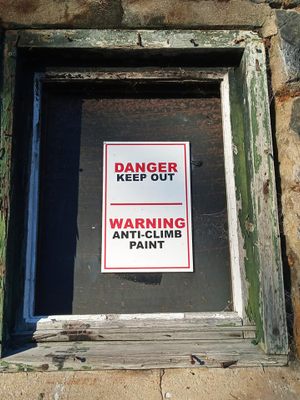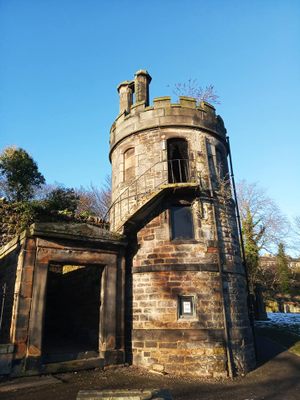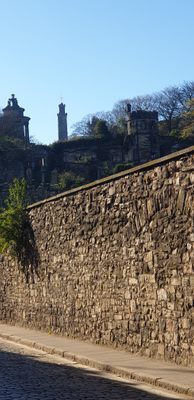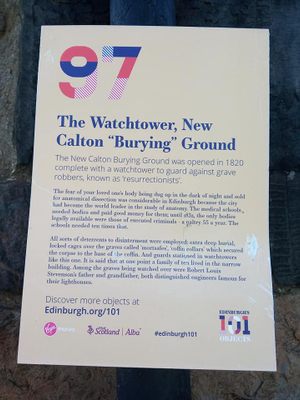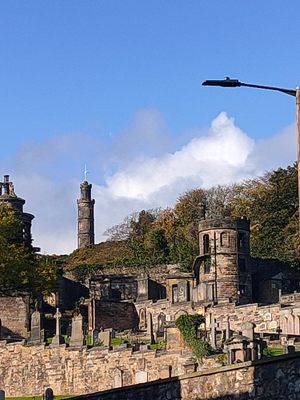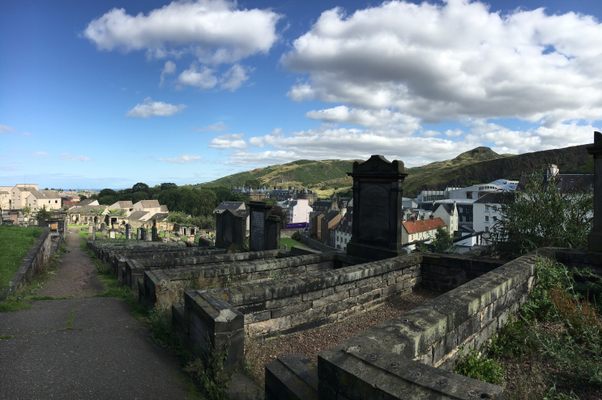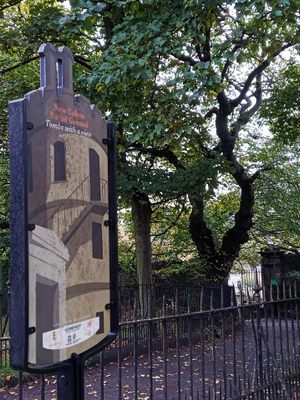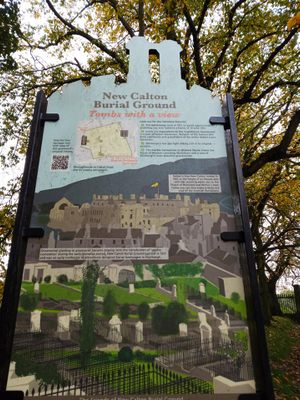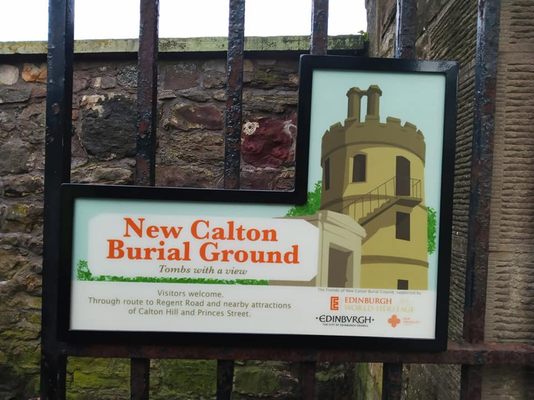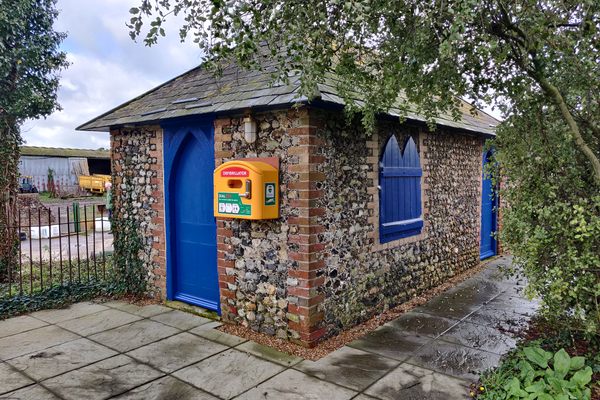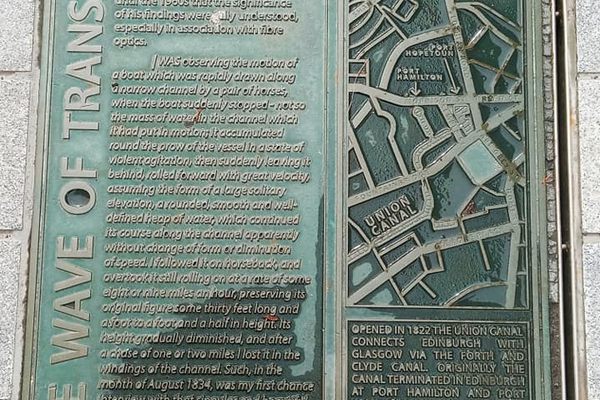About
Before the Anatomy Act of 1832, medical schools in the United Kingdom were only allowed to use the corpses of executed criminals for dissection. As a result, a limited number of cadavers would be made available for any given year, not nearly enough for the burgeoning academic market, and thus the illicit and nefarious practice of body snatching began to flourish.
Facing such a dastardly crime, many cemeteries went to great lengths to see that their patrons were not disturbed during their eternal slumber. This led to the invention of various devices such as coffin torpedoes or mortsafes (grave cages) installed to thwart grave robbers. Another prevention method was to pay someone to watch over the property in order to spot would-be thieves.
The New Calton Burial Ground in Scotland opened in the 1820s during the height of the resurrectionist epidemic. A three-story watchtower was added soon after to bring further safety and security to the families of the recently departed. Yet whether the tower acted as a deterrent is debatable. A fresh corpse could garner as much as 10 shillings, or several months' wages in today's money. At this price, guards could easily be bribed to turn the other way.
Related Tags
Know Before You Go
As with all cemeteries, it is best to use caution and common sense when visiting, especially at night. Be aware of your surroundings and take heed if dropping by on your own. A map detailing the notable persons interred here can be found at the southwest entrance.
Community Contributors
Added By
Published
February 28, 2019










